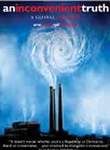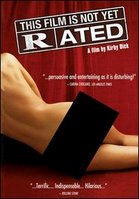
It's nice to see that Netflix offers this as experimental films are often too hard to find on DVD. Also, it's also great that Anger's films have been put together on a DVD set, seeing that his style has had a profound impact on later directors. His filmmaking style, a lot of repetition and pans, as well as his thought out use of a rock and roll soundtrack clearly have a huge influence on Martin Scorsese as well as others. I only do have a limited knowledge of experimental film, but from what I've seen, I would have to say that Anger is my favorite and most exciting experimental filmmaker. He has more of a sense of humor than Brakhage, and his films, especially Scorpio Rising, have more vitality to me than most avant-garde work.
Volume 1 covers Anger's early work, from Fireworks in 1947 to Inauguration of the Pleasure Dome in 1954. These films predate the notoriety he would get in the late 60s with Scorpio Rising but they still feature the use of repetition and focus that would define his work. Anger's films focus very strongly on images, and the dream like way that they appear throughout his films. Even though they may be dream like, they never seem totally random or pointless. There's always a great deal of thought put into trying to convey the right expression. It may not be completely clear all of the time, but it creates films that are definitely unique.
Fireworks (1947) [7]
The most expressive and perhaps the most inaccessible film of Anger's, this film to me has a fever dream feel to it. Dealing heavily with the themes of homosexuality, masochism, and rape, it may turn off people but it shows the talent that Anger had in creating arresting visuals. A young man enter a bathroom only to be brutally raped and beaten by a group of sailors only to find a sort of masochistic awakening, it is still a daring film, sixty years later.
Puce Moment (1949) [5]
A five minute short that Anger said was meant to be an homage to the silent film era. It starts off strong with an opening fixed shot of a shuffle of evening gowns (it's a lot stronger image than it sounds like), the film just doesn't go on long enough to gain any real lasting power in my mind.
Rabbit's Moon (1950) [6]
My introduction to Anger came while I was at the University at Buffalo, and I saw a modified nine minute version of this, which not many places had. The version here is the sixteen minute original that Anger officially released in 1971 even though all the footage was shot in France in 1950. This is the first film to feature what I would consider the rock and roll soundtrack that would be so influential to people like Scorsese. The film itself deals with the idea of a Japanese fairy tale that a rabbit lives in the moon. The narrative doesn't really move anywhere, but the interesting use of repetition and zooms make it appealing.
Eaux d'Artifice (1953) [9]
The most visually arresting of this group of films, Anger filmed the water gardens at Villa d'Este and emerged with one of the most sublime and well-crafted films of his. He uses a midget actress, Carmilla Salvatorelli, to skew the perspective of the film, to make the fountains imposing upon the figure, when in reality, they aren't. Anger also filmed everything using a red filter then printed the film with a blue one to give a unique and arresting pall to the picture. The ending's crescendo of water adds to its arresting nature.
Inauguration of the Pleasure Dome (1954) [6]
While this film may win an award for best title ever for a film, it was a little underwhelming for me. Influenced heavily by the ideas of occultist Alasteir Crowley, the film is a mash of odd images that still manage to feel like they have a purpose. I would consider this one of Anger's most dreamlike films, and while I may be wrong, the film feels like I'm watching someones dream. The film does have an interesting use of superimposition and the portrayal of the ritual, something that is done in depth in Scorpio Rising. Let's hope that Volume 2 isn't far behind.
Volume 1 covers Anger's early work, from Fireworks in 1947 to Inauguration of the Pleasure Dome in 1954. These films predate the notoriety he would get in the late 60s with Scorpio Rising but they still feature the use of repetition and focus that would define his work. Anger's films focus very strongly on images, and the dream like way that they appear throughout his films. Even though they may be dream like, they never seem totally random or pointless. There's always a great deal of thought put into trying to convey the right expression. It may not be completely clear all of the time, but it creates films that are definitely unique.
Fireworks (1947) [7]
The most expressive and perhaps the most inaccessible film of Anger's, this film to me has a fever dream feel to it. Dealing heavily with the themes of homosexuality, masochism, and rape, it may turn off people but it shows the talent that Anger had in creating arresting visuals. A young man enter a bathroom only to be brutally raped and beaten by a group of sailors only to find a sort of masochistic awakening, it is still a daring film, sixty years later.
Puce Moment (1949) [5]
A five minute short that Anger said was meant to be an homage to the silent film era. It starts off strong with an opening fixed shot of a shuffle of evening gowns (it's a lot stronger image than it sounds like), the film just doesn't go on long enough to gain any real lasting power in my mind.
Rabbit's Moon (1950) [6]
My introduction to Anger came while I was at the University at Buffalo, and I saw a modified nine minute version of this, which not many places had. The version here is the sixteen minute original that Anger officially released in 1971 even though all the footage was shot in France in 1950. This is the first film to feature what I would consider the rock and roll soundtrack that would be so influential to people like Scorsese. The film itself deals with the idea of a Japanese fairy tale that a rabbit lives in the moon. The narrative doesn't really move anywhere, but the interesting use of repetition and zooms make it appealing.
Eaux d'Artifice (1953) [9]
The most visually arresting of this group of films, Anger filmed the water gardens at Villa d'Este and emerged with one of the most sublime and well-crafted films of his. He uses a midget actress, Carmilla Salvatorelli, to skew the perspective of the film, to make the fountains imposing upon the figure, when in reality, they aren't. Anger also filmed everything using a red filter then printed the film with a blue one to give a unique and arresting pall to the picture. The ending's crescendo of water adds to its arresting nature.
Inauguration of the Pleasure Dome (1954) [6]
While this film may win an award for best title ever for a film, it was a little underwhelming for me. Influenced heavily by the ideas of occultist Alasteir Crowley, the film is a mash of odd images that still manage to feel like they have a purpose. I would consider this one of Anger's most dreamlike films, and while I may be wrong, the film feels like I'm watching someones dream. The film does have an interesting use of superimposition and the portrayal of the ritual, something that is done in depth in Scorpio Rising. Let's hope that Volume 2 isn't far behind.





